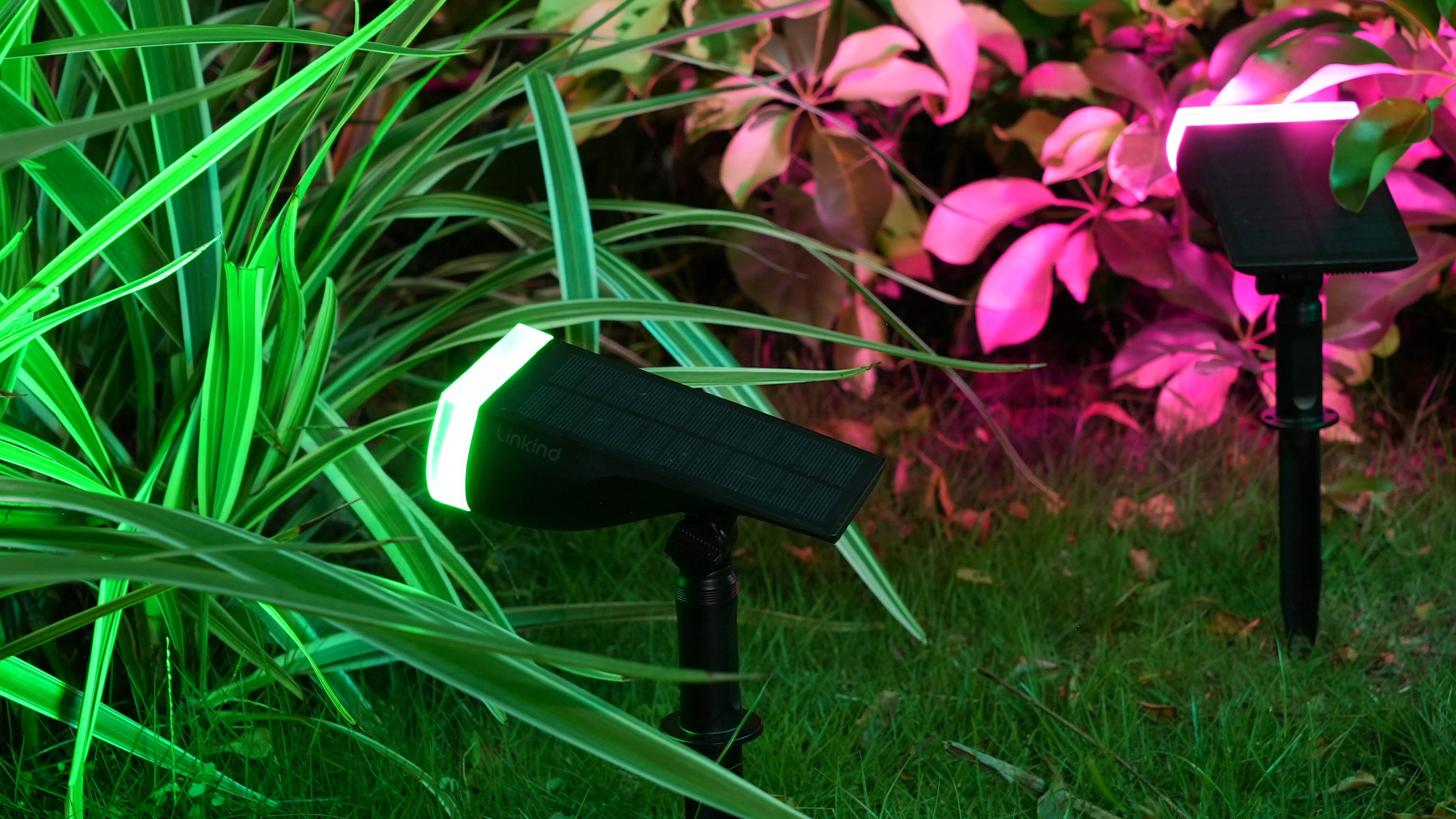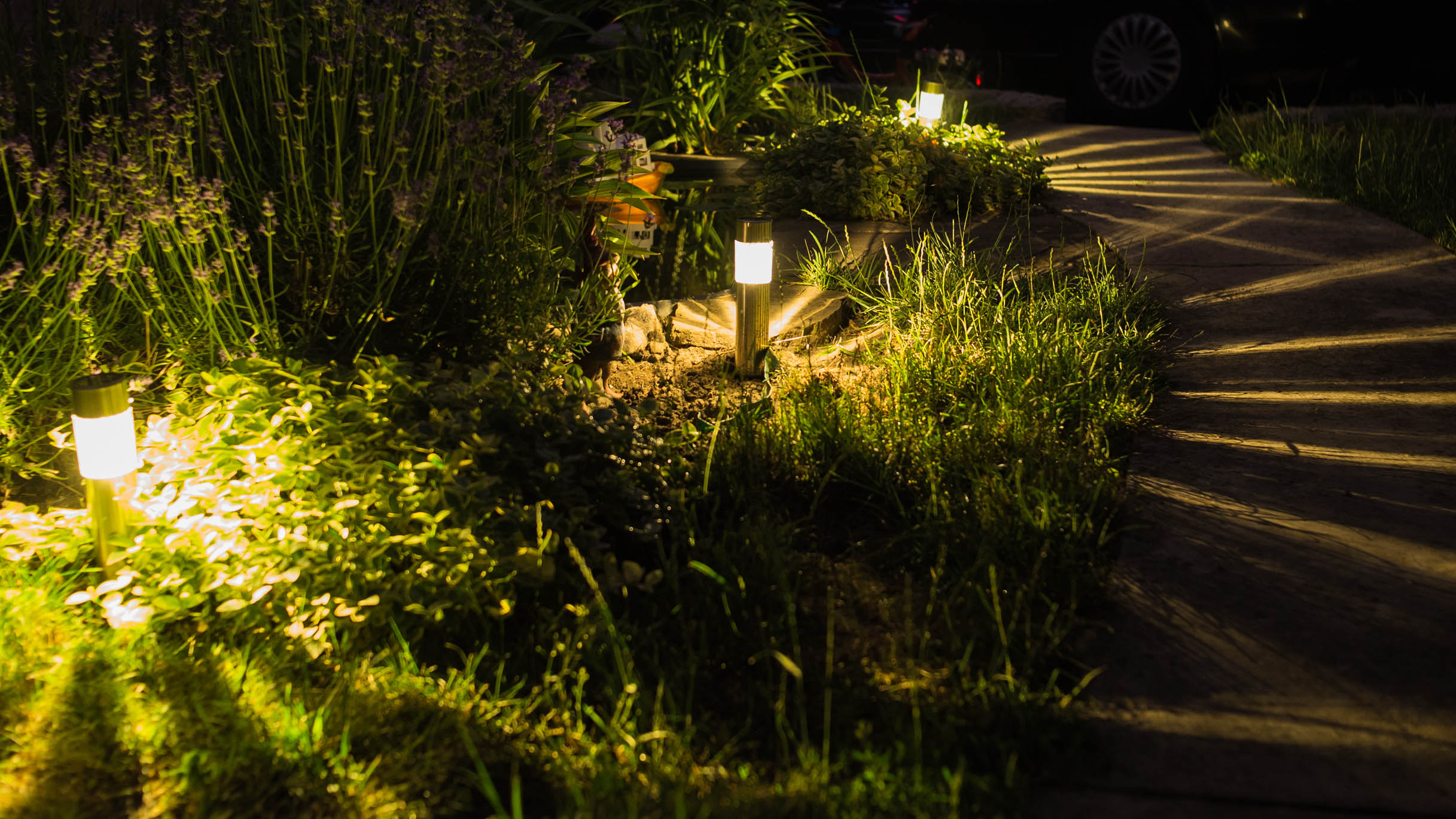
If you want to give your backyard or porch an instant “glow up” once the sun goes down, investing in the best solar lights can make all the difference.
Whether they’re security or decorative lights, not only do they illuminate your pathways, but the soft, ambient tones can showcase your landscaping. However, if you take pride in your beautiful foliage, you might be wondering if solar lights are bad for your plants. And while we're at, can direct light for a long duration potentially damage the growth of your flowers or vegetable beds?
If you’re worried about illuminating your plants, we asked the experts to shed some light (no pun intended) on these questions.
Are solar lights bad for your plants?
The general consensus is "no" — solar lights won’t harm your plants. However, experts state that plants are sensitive to light and might be affected by prolonged, bright conditions.
According to scientific research, outdoor lights can affect plants through photoperiodism. This refers to the way plants react to changes in day length that enables them to adapt to seasonal changes. So in some cases, solar lights could trick plants into continuing their natural daylight cycles into the night — if lights aren't used correctly.
“Solar lights certainly aren't universally bad for plants, but it's important to keep in mind that plants are highly sensitive to light — it's literally what they need to survive.” says Rafi Friedman, president of Coastal Luxury Outdoors. “Plants that routinely grow next to solar lights are going to end up with a distorted sense of the day/night cycle in your area. This can make it hard for some plants to know when to flower and when to go dormant for the season. If you notice that plants right next to your solar lights aren't doing as well, it may be worth moving the lights.”

Additionally, some smart solar lights usually offer several color variations from Warm White (3000K), Cold White (6500K), and multicolored. You can also switch from a high light mode to a low light mode to reduce harm to your plants.
“I have been in the landscaping industry for over 25 years, and I can assure you that solar lights are not harmful to your plants,” adds Gene Caballero, co-founder of GreenPal. “Solar lights only emit low levels of light, which would not interfere with the natural day-night cycle of plants.”
Top tips when placing solar lights near plants
If you do want to showcase your stunning landscaping, experts offered some advice when placing solar lights near your plants.
“My top tips are to position solar lights close to highlight pathways, garden features, or to accentuate plants without crowding them,” advises Caballero. “Do not place lights too close to foliage, because it could trap heat and potentially stress the plant. Ensure your plants get enough natural sunlight during the day, and use solar lights to enhance the ambiance at night.”
Another tip is to install your solar lights as low as possible to decrease light pollution. Wall-mounted lights should be installed up to 15 feet high. Ideally, if you have motion sensors, set a timer on them so the illumination doesn’t stay on for long periods of time. This might cause plants to potentially absorb too much light. Alternatively, you could swap out some of your lightbulbs to be amber or red-hued rather than bright white.
In any case, solar lights are not bad for your plants — when placed correctly. And you can still light up your outdoor spaces in style.







